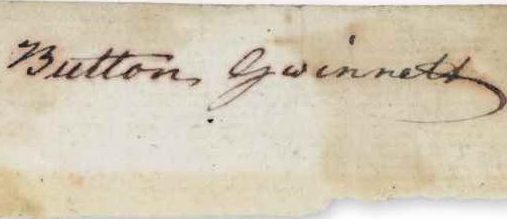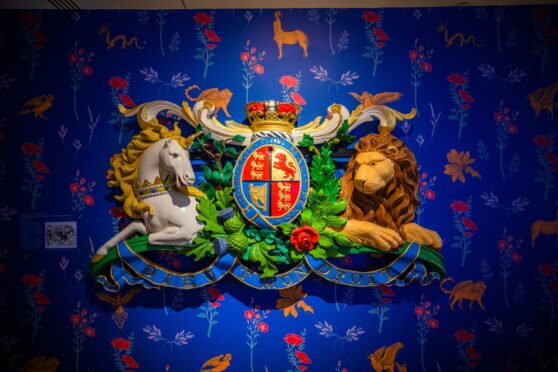ILLUSTRATED IS a tiny scrap of paper worth its weight in rhodium, never mind gold.
It carries the autograph of the little-known Button Gwinnett – and it took a triple-estimate equivalent of £260,000 at Christie’s New York on June 15.
A fortune for a scribbled name? Well, Button Gwinnett (1735-1777) signed the American Declaration of Independence – and his is the rarest of the 56 signatures on that most famous of historic documents.
It is somewhat ironic that Gwinnett has attained such a degree of recognition based on the extreme rarity of his signature rather than on any crucial role in the attainment of American independence.
Born in Gloucestershire, he established himself in Bristol as a merchant, then emigrated to the American colonies, settling first in South Carolina, and later in Savannah, Georgia. There he became friendly with patriot Lyman Hall, a neighbour, and active in the independence movement.
Early in 1776 he was selected as one of Georgia’s five delegates to the Continental Congress. Taking his seat in May, he was present for the vote for independence on July 2 and, with his fellow delegates, signed the Declaration of Independence.
Gwinnett’s service in Congress, though, was relatively brief and after returning to Savannah he served as Speaker of the Georgia Assembly. In March 1777, he became president of the state of Georgia.
A long-simmering feud between Gwinnett and fellow patriot Lachlan McIntosh culminated in a fateful duel, fought on May 17, 1777 in which both men were wounded. Gwinnett succumbed to his injuries on May 25 at the age of 45, further ensuring the rarity of his documents. To rub salt into his wounds, his activities in support of the patriot cause resulted in the destruction of his property during the British occupation of Savannah.
Gwinnett’s signature is considered rare among collectors as many complete sets of the 56 Signers have passed into permanent institutional collections. Since 1980, only six other examples of Gwinnett’s signature have been offered at auction – selling for well over $100,000 on each occasion, with the record standing at $600,000.
The standard census of Button Gwinnett documents records a total of 51 extant autographs, not including the Christie’s example.
Just 2cm x 9cm, it sold for $319,500, the US equivalent of around £260,000.










